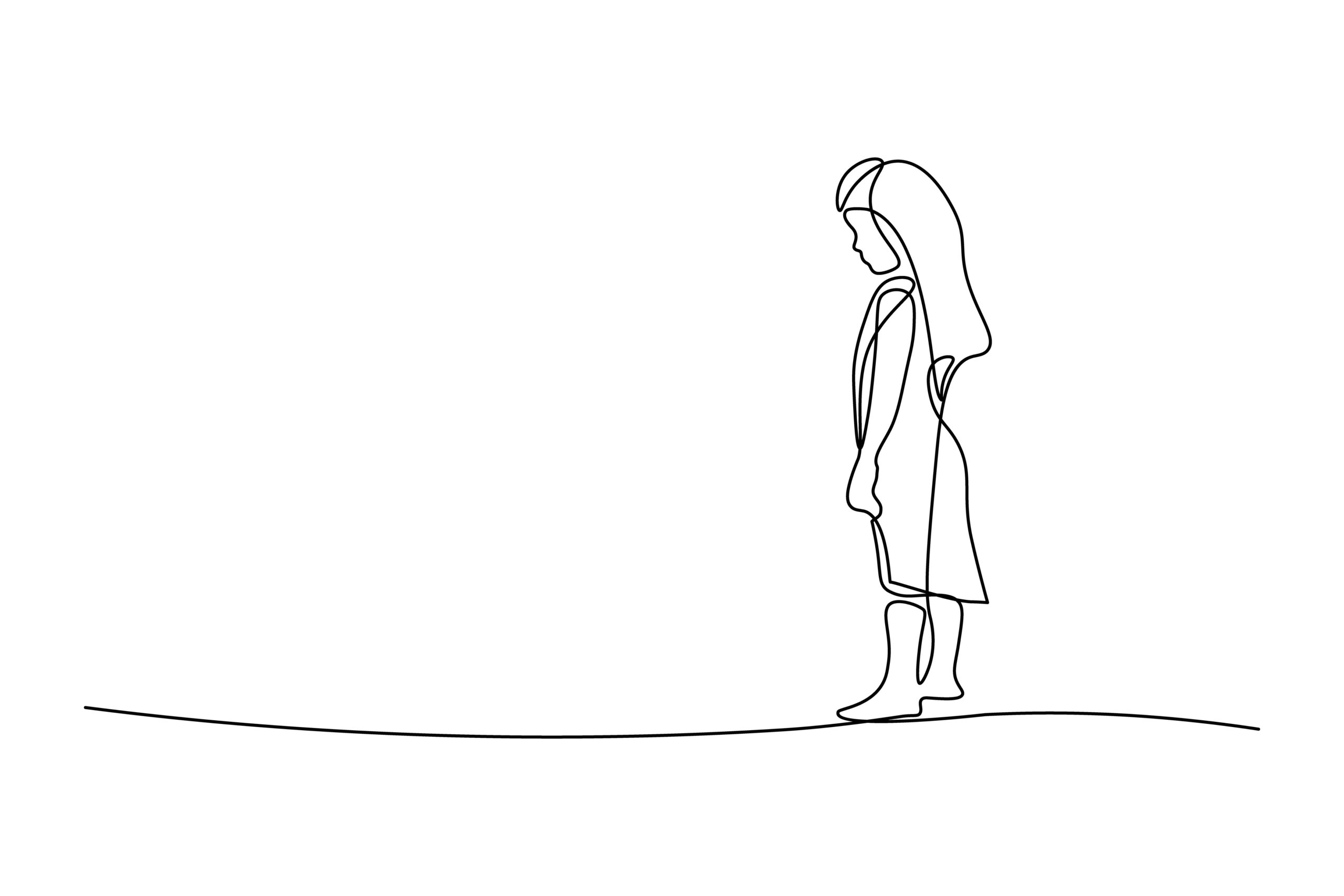Abandonment trauma is a form of emotional distress that can result from a person feeling neglected or rejected. It can develop when a person experiences a traumatic event, such as the loss of a family member or the abandonment of a loved one. This type of trauma can lead to long-term psychological issues and can have an impact on relationships, self-esteem, and overall mental health.
Abandonment issues are quite common, with many of us feeling the effects of trauma and anxiety due to experiences in our past and childhood trauma. Abandonment trauma is caused by a traumatic event that involved the loss or abandonment of an important figure in your life, whether it be through death, divorce, separation, or any other form of disconnection. This can lead to feelings of insecurity, mistrust, helplessness, and fear of further abandonment that can manifest long after the event has passed.
It is important to recognize the signs of abandonment trauma and take appropriate steps in order to heal from it. Below are some key things to know about abandonment trauma, and how you can find relief and healing.
What is Abandonment?
For starters, it’s important to define abandonment. Abandonment is defined as the act of leaving someone behind or ceasing to support them, either emotionally, financially, or otherwise. It can be a physical act, such as when one person leaves another with no intention of returning, but it can also be an emotional act, such as when someone turns away from another and stops providing support in terms of communication, care, or commitment. Other signs of abandonment include:

- Taking away a sense of security
- Withdrawing love, attention, or affection
- Neglecting the emotional and physical needs of another person
- Causing someone to feel rejected
- Creating a feeling of worthlessness
- Causing psychological harm
- Abusive relationships
- Fear of abandonment and separation anxiety
It’s important to note that there are also different types of abandonment, all of which can lead to trauma and anxiety. These include the following.
Childhood Abandonment
The most common form of abandonment is childhood abandonment. This occurs when a parent or guardian leaves the child, either physically or emotionally. It can create feelings of insecurity, mistrust, and helplessness in a child that can carry on into adulthood.
Emotional Abandonment
Other times, abandonment is not physical, but emotional. This occurs when someone is emotionally distant or withdrawn from the relationship, often leaving their partner feeling lonely and unsupported. This kind of emotional disconnect can be just as damaging as physical abandonment, leading to feelings of helplessness and mistrust.
It’s important to note that this type of abandonment is often unintentional, with the person may not even realize they are emotionally withdrawing from their partner. It’s still important to acknowledge this behavior and bring it up in a respectful manner.
Signs of Abandonment Issues
Whether someone has experienced physical or emotional abandonment, there are certain signs and symptoms that can indicate a person is struggling with abandonment issues. These include:

- Fear of being abandoned
- Feelings of insecurity and mistrust
- Low self-esteem
- Difficulty forming or maintaining relationships
- Trouble with trust
- Anxiety and depression
- Inability to cope with abandonment
- Post-traumatic stress disorder (PTSD) from abandonment
- Separation anxiety, such as not wanting someone to leave or feeling anxious if they are gone too long
Unfortunately, most people don’t realize just how big of an impact abandonment can have, so it’s important to be aware of the signs and take steps toward healing.
Why Healing From Abandonment Trauma is Important
Healing from abandonment fears can be a long and difficult process, but it is an important one. Without healing, the feelings of fear, insecurity, and mistrust can overshadow other aspects of life and prevent someone from feeling connected to themselves or others.
That’s why it’s so important to recognize when you or a loved one is struggling with abandonment issues. It’s also important to take active steps to heal from abandonment for the following reasons.
Healthier Adult Relationships
If a person has been struggling with abandonment issues, it can be hard to form and maintain healthy relationships. The fear of being abandoned again can lead to distrust and a lack of closeness in relationships, which can prevent them from forming strong, meaningful connections with others.
In addition, abandonment theory also suggests that those who experienced abandonment in childhood and childhood trauma may have difficulty forming new relationships. As infants and children, we depend on our parents for safety and security. When we are abandoned, it can lead to fear of abandonment, feelings of insecurity, and feelings of mistrust that follow us into adulthood.
By healing from abandonment trauma, however, a person can learn to trust others and form healthier relationships with friends and loved ones.
Gain Self-Confidence and Self-Esteem
Another important reason to heal from abandonment trauma is to be able to build self-confidence and self-esteem. When someone has been abandoned, they may feel unworthy or undeserving of love, care, and attention. Emotional abandonment can also play a role in leading to feelings of low self-esteem. Studies have shown that psychological harm toward children can lead to feelings of low self-worth later in adolescents. This is because if a child’s emotional needs are not being met, it can lead to feelings of worthlessness and insecurity.
By healing from abandonment trauma, however, these feelings can be alleviated and replaced with feelings of self-confidence and self-esteem. This can then help the person feel more secure in themselves and their relationships.
Improve Long-Term Mental Health
Working with a mental health professional is a great tool for people who suffer from abandonment issues and co-occurring mental health conditions. For instance, one of the most widely recognized symptoms of the mental health condition known as borderline personality disorder, or BPD, is abandonment sensitivity.
People who have BPD often feel intense fear of abandonment and struggle to form relationships with others because of it. This can then lead to an increase in unhealthy behaviors, such as self-harming or substance abuse, toxic relationships, and more.
BPD is just one of many mental health issues that can become worsened by abandonment and lead to abandonment issues. By addressing fear of abandonment head-on, however, a person can improve their long-term mental health and seek specialized care such as dialectical behavior therapy.
Prevent Co-Dependency
Lastly, abandonment issues can also be a risk factor for the later development of codependency and unhealthy relationships. People with abandonment issues may find themselves relying too heavily on others, whether it’s romantic partners, family members, or friends. This behavior also stems from a fear of abandonment and leads to codependency in relationships, which can coincide with other symptoms such as:

- Inability to recognize one’s own needs
- An imbalance of relationship power
- Feelings of guilt or shame
- The fear of being alone
- Need for approval
- Fear of rejection
- Putting up with abuse such as psychological and physical trauma
Many people with codependency issues may not even realize that it’s because of their abandonment issues. In healing from abandonment trauma, however, a person can learn to recognize and assert their own needs. This will help create healthier relationships in the future, promote healthy relationships, and reduce the risk of codependency.
How to Heal From Abandonment Trauma
To help cope with abandonment trauma, it’s important for individuals to seek professional help from therapy or support groups so they can work through their pain in a safe space and build up healthier coping mechanisms for future challenges. They should also focus on developing healthy habits such as staying active, eating well, and getting enough sleep in order to stay physically and mentally strong during this difficult time. Additionally, talking with trusted friends or family members about what you’re going through can be beneficial in overcoming these feelings of isolation associated with abandonment trauma.
Though healing from abandonment trauma takes time and work, it is possible. Here are some steps a person can take to begin their healing journey:
Identify the feelings associated with abandonment
It’s essential to be able to recognize feelings of fear, anger, guilt, and shame that may come up when thinking about past experiences with abandonment.
Learn to accept and let go of the past
Accepting that the past has happened can be difficult but is essential for healing. Learning to forgive yourself and others involved in traumatic events, early childhood trauma, and abandonment experiences can help break free from the cycle of trauma.
Create safety boundaries
Creating safety boundaries, such as limits on how much time you spend with certain people, can help protect yourself from feeling hurt by another person.
Seek out support
Talking to a therapist or seeking professional help can be beneficial in working through abandonment issues and developing healthier coping methods. Psychotherapy and other counseling forms can help build self-esteem, trust, and security.
Practice self-care
Taking care of your mental and physical health is key to healing from trauma. This could include activities such as yoga, meditation, journaling, and more. In addition, spending time in nature or spending quality time with friends and family can also be helpful and help you gain clarity and peace of mind.
Overall, understanding your vulnerability to abandonment trauma will help you make informed decisions about your relationships and protect yourself emotionally when needed in the future. Knowing how to address these traumatic experiences head-on is essential for letting go of abandonment anxiety and abandonment fear, and finding peace within yourself after being betrayed or hurt in the past.
By taking these steps, a person can begin their journey towards healing from abandonment trauma. With the help of a qualified mental health professional, it is possible to work through any underlying issues related to abandonment and develop long-lasting feelings of security and self-confidence in relationships with others.
Find Your Voice and Heal Today
Healing from abandonment trauma and childhood abuse can take work. However, we at Clear Behavioral Health are here to support you every step of the way. With specialized treatment programs and staff experienced in helping those with abandonment trauma, PTSD, substance abuse, and other mental illnesses, we can help you find the confidence to heal and move forward. Contact Clear Behavioral Health today to learn more about our mental health services including residential mental health treatment, outpatient mental health programs, and virtual treatment programs. The journey to start finding your voice and healing is one call or click away.
